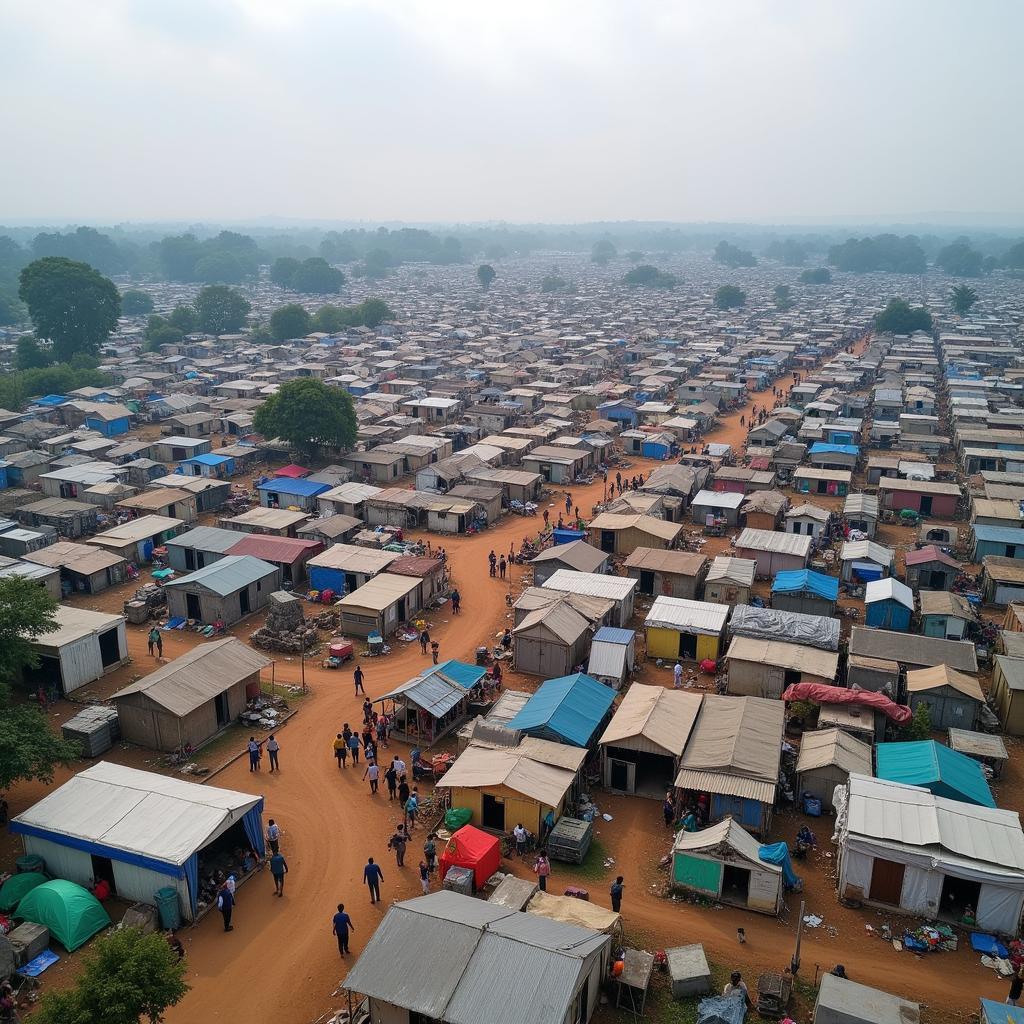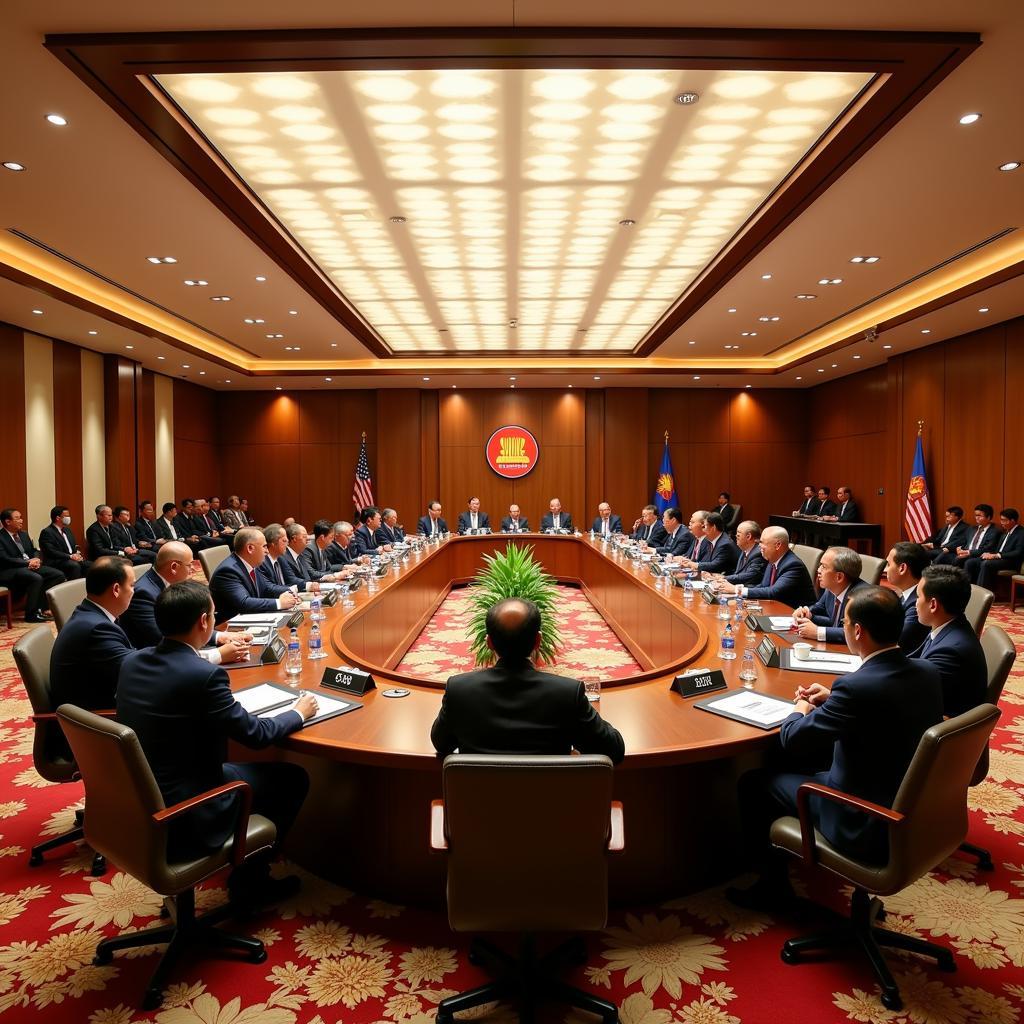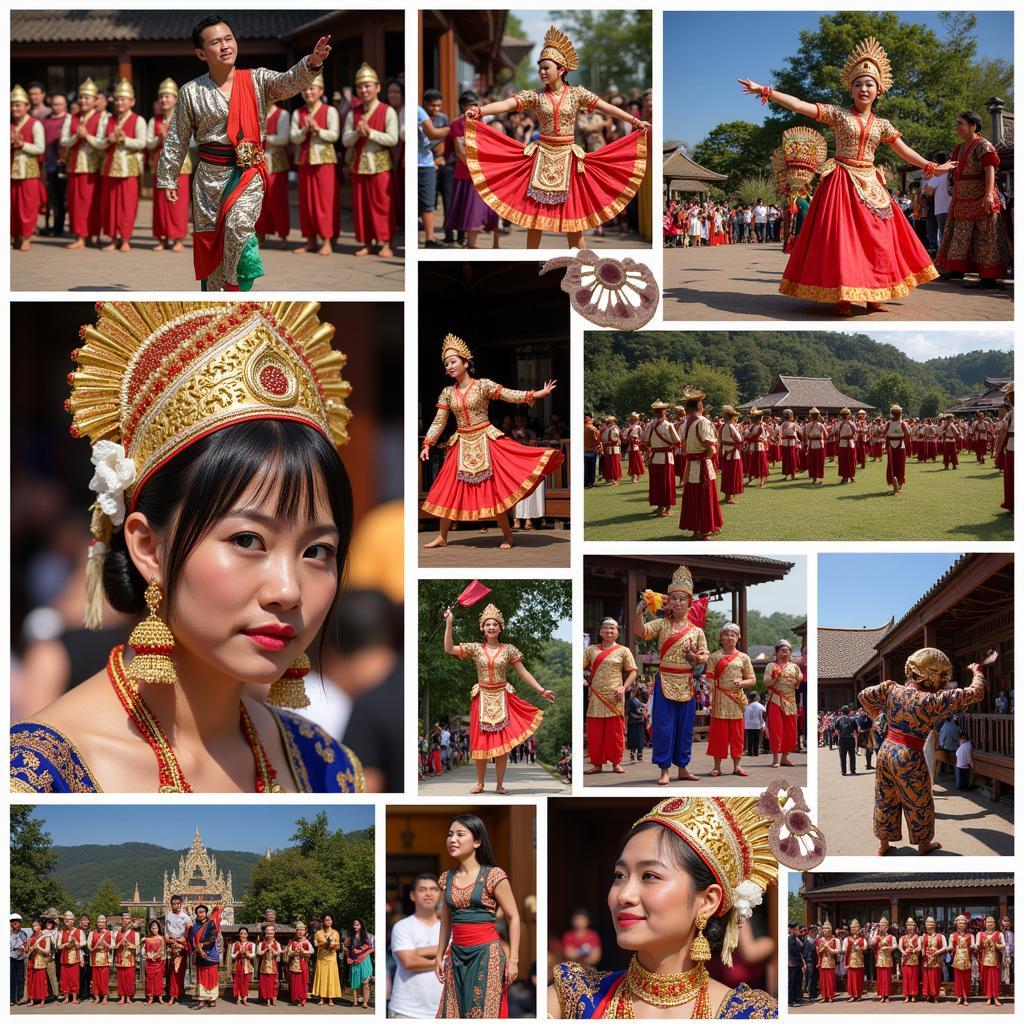The Rohingya crisis, a humanitarian disaster unfolding in Myanmar and impacting the wider Southeast Asian region, presents a significant challenge for ASEAN. This complex situation, marked by displacement, violence, and human rights concerns, has tested the organization’s principles of non-interference and consensus-based decision-making.
A Crisis on ASEAN’s Doorstep: Understanding the Rohingya Refugee Crisis
The exodus of Rohingya refugees from Myanmar, primarily seeking refuge in neighboring Bangladesh, has created a humanitarian emergency that transcends national borders. This crisis, rooted in decades of systemic discrimination and persecution, has strained resources and exposed the limitations of ASEAN’s ability to effectively address internal conflicts within member states.
 Rohingya Refugee Camp in Bangladesh
Rohingya Refugee Camp in Bangladesh
The principle of non-interference, a cornerstone of ASEAN’s operating framework, has often been cited as a barrier to proactive engagement in addressing the root causes of the Rohingya crisis. This principle, while intended to foster regional stability, has been criticized for hindering the organization’s ability to address human rights violations and provide humanitarian assistance in a timely and effective manner.
ASEAN’s Response to the Rohingya Crisis: Walking a Diplomatic Tightrope
ASEAN has faced considerable challenges in formulating a unified and impactful response to the Rohingya crisis. The diverse political and economic interests within the organization, coupled with the sensitivity surrounding issues of sovereignty and non-interference, have resulted in a measured and cautious approach.
 ASEAN Leaders at a Summit Meeting
ASEAN Leaders at a Summit Meeting
Despite these constraints, ASEAN has undertaken several initiatives aimed at mitigating the humanitarian crisis and facilitating a durable solution. These efforts include providing humanitarian assistance to affected communities, facilitating dialogue between Myanmar and Bangladesh, and promoting repatriation of refugees based on the principles of safety, voluntariness, and dignity.
The Rohingya Crisis: A Test of ASEAN’s Unity and Purpose
The Rohingya crisis has exposed the complexities and limitations of ASEAN’s institutional framework. The organization’s commitment to non-interference, while intended to maintain regional stability, has been tested by a crisis that demands a coordinated and robust response.
The crisis has underscored the need for ASEAN to evolve its mechanisms for conflict resolution and crisis management. Finding a balance between respecting national sovereignty and upholding human rights remains a key challenge for the organization.
Looking Ahead: The Future of ASEAN and the Rohingya Crisis
The Rohingya crisis will continue to be a defining challenge for ASEAN in the years to come. The organization’s ability to navigate this crisis effectively will have significant implications for its credibility, unity, and effectiveness in addressing future challenges.
Addressing the root causes of the crisis, including promoting human rights, ensuring accountability, and facilitating sustainable solutions for the Rohingya people, will be crucial for achieving lasting peace and stability in the region.
Frequently Asked Questions about the Rohingya Crisis and ASEAN
- What is ASEAN’s stance on the Rohingya crisis? ASEAN has called for a peaceful resolution to the crisis, emphasizing the importance of dialogue, humanitarian assistance, and repatriation of refugees based on principles of safety, voluntariness, and dignity.
- How has the Rohingya crisis affected ASEAN’s relations with Myanmar? The crisis has strained ASEAN’s relations with Myanmar, with some member states expressing concerns over the human rights situation and calling for greater transparency and accountability.
- What is the role of the international community in addressing the Rohingya crisis? The international community plays a crucial role in providing humanitarian assistance, advocating for human rights, and supporting efforts to find a durable solution to the crisis.
Need Assistance?
For any inquiries or assistance, please contact us:
Phone Number: 0369020373
Email: [email protected]
Address: Thon Ngoc Lien, Hiep Hoa, Bac Giang, Vietnam.
Our dedicated customer service team is available 24/7 to assist you.
